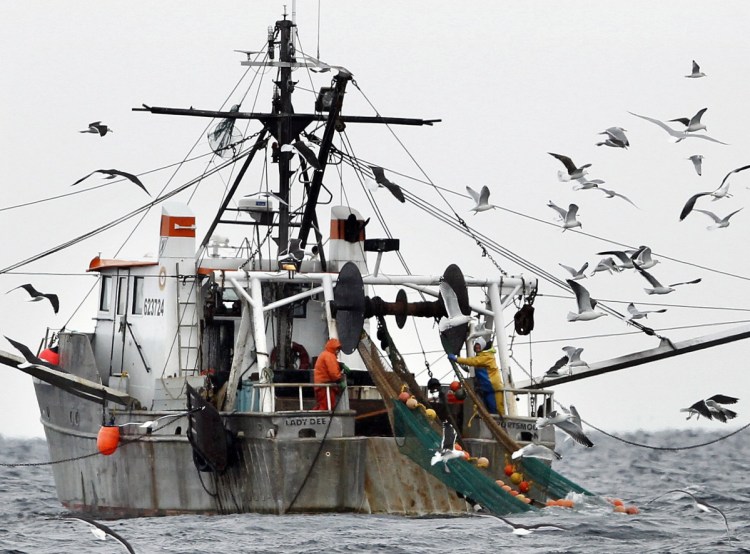A new analysis of New England’s shrimp population doesn’t bode well for the future of the long-shuttered fishery for the crustaceans.
The Maine-based shrimp fishery has been shut down since 2013 because of concerns such as warming ocean temperatures and poor survival of young. Scientists working with the Atlantic States Marine Fisheries Commission are assessing the shrimp stock, and so far it looks like little has changed.
Results of the stock assessment “look fairly similar to what we’ve seen in previous years,” said Megan Ware, a fishery management plan coordinator with the Atlantic States. That means reopening the fishery anytime soon could be a tough sell when regulators meet to discuss and vote on the subject this fall. “We’re still seeing low trends for northern shrimp,” said Ware. “Low abundance, low biomass.”
The small, pinkish shrimp were previously a popular winter seafood item in New England and around the country before regulators shuttered the fishery. Fishermen sought them with trawler boats and traps in Maine, New Hampshire and Massachusetts, sometimes catching more than 10 million pounds in a single year.
Scientists have said the shrimp face a long-term threat from the warming of the Gulf of Maine, which is one of the fastest-warming bodies of water in the world. Warm water is inhospitable for the animal’s recovery, the Atlantic States Marine Fisheries Commission has said.
The closure of the fishery has left New England fishermen, who also contend with other declining species such as cod, with one less option. Terry Alexander, a longtime fisherman from Harpswell, said he’d like to see the fishery reopen, but he’s not optimistic. “I’m not sure what we can do it save it. I wish we could get a little season out of it, but that has fallen on deaf ears.”
An official report of the stock assessment is expected next month. An arm of the Atlantic States is expected to decide on whether to continue the moratorium by November.
Copy the Story LinkSend questions/comments to the editors.



Success. Please wait for the page to reload. If the page does not reload within 5 seconds, please refresh the page.
Enter your email and password to access comments.
Hi, to comment on stories you must . This profile is in addition to your subscription and website login.
Already have a commenting profile? .
Invalid username/password.
Please check your email to confirm and complete your registration.
Only subscribers are eligible to post comments. Please subscribe or login first for digital access. Here’s why.
Use the form below to reset your password. When you've submitted your account email, we will send an email with a reset code.